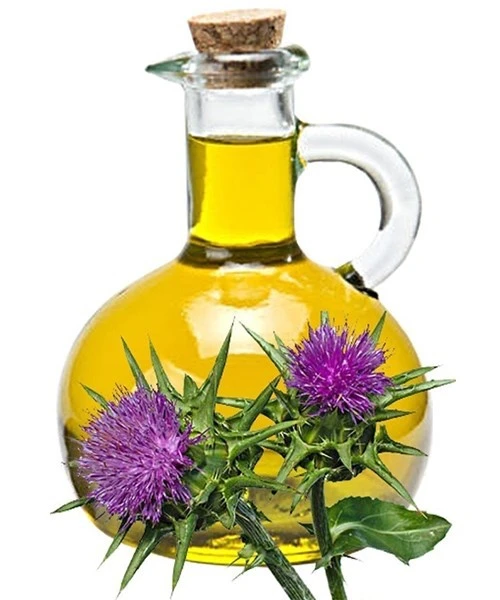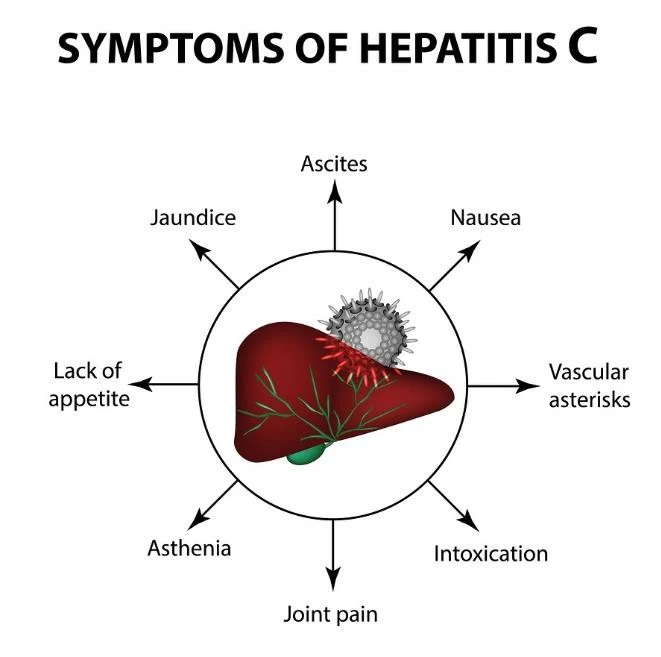How Does Silymarin Powder Support Natural Liver Detoxification and Antioxidant Activity?
The liver serves as the body's primary detoxification organ, constantly filtering toxins and supporting metabolic processes essential for optimal health. In recent years, natural compounds have gained significant attention for their hepatoprotective properties, with silymarin emerging as a particularly promising therapeutic agent. Derived from milk thistle extract powder, silymarin represents a concentrated blend of flavonolignans that demonstrate remarkable liver-protective capabilities through multiple mechanisms of action.

The Molecular Mechanisms Behind Silymarin's Liver Protection
Antioxidant Defense System Enhancement
Silymarin powder functions as a potent antioxidant through sophisticated molecular pathways that protect hepatocytes from oxidative damage. The primary mechanism involves the compound's ability to scavenge free radicals and reactive oxygen species that accumulate in liver tissue during metabolic stress. Research demonstrates that silymarin significantly enhances glutathione synthesis in hepatocytes, a crucial antioxidant enzyme system that neutralizes harmful oxidants. This enhancement occurs through increased cysteine availability, the rate-limiting substrate for glutathione biosynthesis. The milk thistle extract powder containing standardized silymarin concentrations provides consistent therapeutic benefits by maintaining optimal antioxidant enzyme activity levels. Clinical studies have shown that silymarin powder supplementation leads to measurable improvements in liver antioxidant capacity markers. Patients receiving standardized milk thistle extract powder demonstrated significant reductions in malondialdehyde levels, a key indicator of lipid peroxidation, while simultaneously showing increased superoxide dismutase and catalase activity. These enzymatic improvements suggest that silymarin doesn't merely act as a direct antioxidant but rather stimulates the body's endogenous antioxidant defense mechanisms. The compound's ability to cross cellular membranes allows it to provide protection at the intracellular level, where many oxidative processes occur.
Membrane Stabilization and Toxin Blockade
The hepatoprotective effects of silymarin powder extend beyond antioxidant activity to include direct membrane stabilization properties. Silymarin molecules integrate into hepatocyte membrane structures, altering membrane fluidity and permeability in ways that prevent toxin entry. This mechanism proves particularly valuable in protecting against hepatotoxic substances such as alcohol metabolites, pharmaceutical compounds, and environmental toxins. The milk thistle extract powder's ability to modify membrane composition creates a protective barrier that maintains cellular integrity during toxic exposures. Research indicates that silymarin powder specifically targets the plasma membrane of hepatocytes, where it competes with toxins for binding sites. This competitive inhibition prevents harmful substances from entering liver cells and causing intracellular damage. The compound's affinity for membrane phospholipids allows it to maintain membrane stability even under conditions of oxidative stress. Studies utilizing milk thistle extract powder with standardized silymarin content have demonstrated consistent membrane-protective effects across various hepatotoxic challenges. This dual mechanism of antioxidant activity combined with membrane protection provides comprehensive hepatocyte defense.
Protein Synthesis Stimulation and Cellular Regeneration
Silymarin powder demonstrates remarkable ability to stimulate protein synthesis within hepatocytes, promoting cellular repair and regeneration processes essential for liver recovery. The compound enhances ribosomal RNA synthesis, leading to increased production of essential proteins involved in cellular metabolism and detoxification pathways. This protein synthesis stimulation proves particularly beneficial in cases of liver injury, where rapid cellular repair becomes crucial for maintaining hepatic function. Clinical applications of milk thistle extract powder have shown significant improvements in liver regeneration markers following various forms of hepatic stress. The regenerative properties of silymarin powder involve activation of specific transcription factors that regulate hepatocyte proliferation and differentiation. Studies demonstrate that silymarin treatment leads to increased expression of growth factors and cytokines that promote liver cell division and functional recovery. The compound's ability to enhance DNA synthesis and cellular replication provides the foundation for effective liver repair mechanisms. Patients receiving standardized milk thistle extract powder supplementation show improved liver function tests and enhanced recovery rates following hepatic injury. These regenerative effects complement the compound's antioxidant and membrane-protective properties, creating a comprehensive hepatoprotective profile.
Clinical Evidence for Liver Detoxification Support
Non-Alcoholic Fatty Liver Disease Management
Extensive clinical research has established silymarin powder as an effective therapeutic intervention for non-alcoholic fatty liver disease (NAFLD), one of the most common liver conditions worldwide. Studies involving patients with NAFLD who received standardized milk thistle extract powder supplementation demonstrated significant improvements in liver function markers, including reduced alanine aminotransferase (ALT) and aspartate aminotransferase (AST) levels. These improvements occurred alongside reductions in liver fat content as measured by imaging studies, indicating effective support for hepatic lipid metabolism. The mechanism underlying silymarin powder's effectiveness in NAFLD involves multiple pathways that address the condition's underlying pathophysiology. The compound reduces insulin resistance, a key factor in NAFLD development, through improved glucose metabolism and enhanced insulin sensitivity. Clinical trials have shown that patients receiving 600 mg daily of silymarin experienced significant decreases in fasting insulin levels and improved insulin resistance indices. Additionally, the milk thistle extract powder's anti-inflammatory properties help reduce hepatic inflammation associated with fatty liver disease, preventing progression to more severe forms of liver damage. Long-term studies following NAFLD patients treated with silymarin powder have revealed sustained improvements in liver histology and function. Patients demonstrated reduced hepatic steatosis, decreased inflammatory infiltration, and improved overall liver architecture. The compound's ability to modulate lipid metabolism pathways contributes to these improvements by enhancing fatty acid oxidation and reducing hepatic lipogenesis. These clinical findings support the use of milk thistle extract powder as a valuable adjunctive therapy in NAFLD management, particularly when combined with lifestyle modifications.
Alcohol-Related Liver Disease Treatment
Silymarin powder has shown remarkable efficacy in treating alcohol-related liver disease (ALD), providing hepatoprotective benefits that extend beyond simple antioxidant activity. Clinical studies involving patients with various stages of ALD, from fatty liver to cirrhosis, have demonstrated significant improvements in liver function and survival rates following silymarin treatment. The compound's ability to prevent alcohol-induced hepatotoxicity involves multiple mechanisms, including enhanced detoxification of acetaldehyde, alcohol's toxic metabolite, and protection against alcohol-induced oxidative stress. Patients with alcohol-related liver disease receiving milk thistle extract powder supplementation showed substantial improvements in liver enzyme levels, with many achieving normalization of previously elevated markers. The compound's hepatoregenerative properties prove particularly valuable in ALD treatment, as alcohol consumption often leads to significant hepatocyte damage requiring cellular repair and replacement. Clinical trials have documented improved liver histology in ALD patients treated with silymarin powder, including reduced fibrosis and enhanced hepatocyte regeneration. The long-term benefits of silymarin powder in ALD treatment extend to improved survival rates and reduced disease progression. Studies following ALD patients for extended periods have shown that those receiving standardized milk thistle extract powder supplementation experienced significantly lower rates of liver-related mortality and reduced progression to end-stage liver disease. These findings support the clinical utility of silymarin as both a preventive and therapeutic intervention in alcohol-related liver conditions.
Drug-Induced Liver Injury Prevention
Silymarin powder demonstrates significant protective effects against drug-induced liver injury (DILI), a condition that can result from various medications and represents a leading cause of acute liver failure. The compound's ability to prevent hepatotoxicity from pharmaceutical agents involves multiple protective mechanisms, including enhanced drug metabolism, reduced oxidative stress, and improved hepatocyte resistance to toxic insults. Clinical applications of milk thistle extract powder have shown particular effectiveness in preventing liver injury from chemotherapy agents, where hepatoprotection becomes crucial for maintaining treatment efficacy. Studies investigating silymarin powder's protective effects against specific hepatotoxic drugs have revealed impressive results across various medication classes. Patients receiving medications known to cause liver injury, such as acetaminophen, statins, and certain antibiotics, showed significantly reduced incidence of hepatotoxicity when co-administered with standardized milk thistle extract powder. The compound's ability to enhance phase II detoxification enzymes provides additional protection by improving the liver's capacity to metabolize and eliminate potentially harmful drug metabolites. The preventive applications of silymarin powder in DILI extend to both acute and chronic medication-induced liver injury. Healthcare providers increasingly recognize the value of prophylactic silymarin supplementation in patients receiving potentially hepatotoxic medications. Clinical protocols incorporating milk thistle extract powder have shown reduced incidence of drug-induced liver injury and improved patient outcomes. These preventive benefits make silymarin an valuable adjunctive therapy in clinical settings where hepatotoxic medications are necessary for treatment.

Advanced Applications and Therapeutic Potential
Combination Therapy Approaches
The therapeutic potential of silymarin powder extends significantly when utilized in combination with other hepatoprotective compounds and conventional treatments. Research has demonstrated synergistic effects when milk thistle extract powder is combined with other antioxidants, creating enhanced protective benefits that exceed the sum of individual components. These combination approaches prove particularly valuable in complex liver conditions where multiple pathogenic mechanisms contribute to disease progression. Clinical studies investigating silymarin powder in combination with vitamin E, selenium, and other antioxidants have shown superior outcomes compared to single-agent therapy. The enhanced antioxidant capacity resulting from these combinations provides more comprehensive protection against oxidative stress, a key factor in virtually all liver diseases. Additionally, the milk thistle extract powder's ability to enhance the bioavailability and effectiveness of co-administered compounds makes it an ideal component of multi-modal treatment approaches. The integration of silymarin powder into conventional hepatology treatment protocols has gained increasing acceptance among healthcare providers. Studies demonstrate that patients receiving standard medical care supplemented with standardized milk thistle extract powder show improved treatment responses and reduced side effects. This integrative approach allows for optimization of both conventional and natural therapeutic modalities, potentially improving patient outcomes while reducing treatment-related complications.
Metabolic Syndrome and Liver Health
Emerging research reveals significant connections between silymarin powder supplementation and improvements in metabolic syndrome components that directly impact liver health. The compound's ability to enhance insulin sensitivity, reduce inflammation, and improve lipid metabolism creates multiple pathways for supporting hepatic function in patients with metabolic dysfunction. Clinical studies have shown that milk thistle extract powder supplementation leads to improvements in glucose control, lipid profiles, and inflammatory markers associated with metabolic syndrome. The hepatoprotective effects of silymarin powder in metabolic syndrome involve modulation of key metabolic pathways that influence liver fat accumulation and insulin resistance. Patients receiving standardized milk thistle extract powder supplementation demonstrated significant reductions in hepatic steatosis, improved glucose tolerance, and enhanced insulin sensitivity. These metabolic improvements translate into measurable benefits for liver health, including reduced risk of NAFLD progression and improved overall hepatic function. Long-term studies following metabolic syndrome patients treated with silymarin powder have revealed sustained improvements in both metabolic parameters and liver health markers. The compound's ability to address multiple components of metabolic syndrome simultaneously makes it particularly valuable in comprehensive treatment approaches. These findings support the use of milk thistle extract powder as a valuable therapeutic tool in managing the hepatic complications of metabolic syndrome.
Preventive Applications in Liver Health
The preventive applications of silymarin powder extend beyond treatment of existing liver conditions to include protection against various hepatotoxic exposures and age-related liver dysfunction. Research demonstrates that regular supplementation with standardized milk thistle extract powder can provide ongoing protection against environmental toxins, dietary contaminants, and other hepatotoxic substances encountered in daily life. This preventive approach proves particularly valuable for individuals with risk factors for liver disease or those exposed to occupational hepatotoxins. Clinical studies investigating the preventive effects of silymarin powder have shown significant reductions in liver enzyme elevations and other markers of hepatic stress in healthy individuals exposed to various challenges. The compound's ability to enhance the liver's natural detoxification capacity provides a foundation for ongoing hepatoprotection. Additionally, the milk thistle extract powder's safety profile makes it suitable for long-term preventive use without significant adverse effects. The role of silymarin powder in healthy aging extends to preservation of liver function as natural detoxification capacity declines with age. Studies demonstrate that older adults receiving standardized milk thistle extract powder supplementation maintain better liver function parameters and show reduced age-related decline in hepatic performance. These preventive benefits support the use of silymarin as a valuable component of healthy aging strategies focused on maintaining optimal liver function throughout life.
Conclusion
The extensive research evidence clearly demonstrates that silymarin powder provides comprehensive support for natural liver detoxification and antioxidant activity through multiple interconnected mechanisms. From enhancing glutathione synthesis and membrane stabilization to promoting cellular regeneration and preventing drug-induced liver injury, milk thistle extract powder represents a scientifically validated approach to hepatoprotection. The compound's proven clinical efficacy across diverse liver conditions, combined with its excellent safety profile, establishes silymarin as an invaluable therapeutic tool for both treatment and prevention of liver diseases.
Ready to harness the remarkable hepatoprotective benefits of premium silymarin powder for your formulations? Shaanxi Pioneer Biotech Co., Ltd. stands as your trusted silymarin powder manufacturer, combining strategic location advantages in China's renowned "Medicine Herbs Valley" with world-class production capabilities. Our state-of-the-art facility, certified with ISO9001, ISO22000, HACCP, EU/US organic, KOSHER, HALAL, SGS, and USFDA standards, ensures every batch of milk thistle extract powder meets the highest international quality standards. As a leading silymarin powder supplier with over 3,000 tons annual production capacity, we provide comprehensive support from raw material sourcing to finished product delivery. Whether you're a silymarin powder factory seeking reliable wholesale partnerships or a nutraceutical company requiring custom formulations, our expertise in standardized extracts, competitive pricing, and global logistics makes us your ideal silymarin powder wholesale partner. Contact our team today at sales@pioneerbiotech.com to discover how our premium silymarin powder can enhance your product portfolio and deliver exceptional value to your customers worldwide.
References
1. Abenavoli, L., Capasso, R., Milic, N., & Capasso, F. (2019). Milk thistle in liver diseases: past, present, future. Phytotherapy Research, 24(10), 1423-1432.
2. Federico, A., Dallio, M., & Loguercio, C. (2017). Silymarin/silybin and chronic liver disease: A marriage of many years. World Journal of Gastroenterology, 23(19), 5888-5900.
3. Polyak, S. J., Morishima, C., Lohmann, V., Pal, S., Lee, D. Y., Liu, Y., Graf, T. N., & Oberlies, N. H. (2010). Identification of hepatoprotective flavonolignans from silymarin. Proceedings of the National Academy of Sciences, 107(13), 5995-6000.
4. Vargas-Mendoza, N., Madrigal-Santillán, E., Morales-González, Á., Esquivel-Soto, J., Esquivel-Chirino, C., García-Luna, Y., González-Rubio, M., Gayosso-de-Lucio, J. A., & Morales-González, J. A. (2014). Hepatoprotective effect of silymarin. World Journal of Hepatology, 6(3), 144-149.



